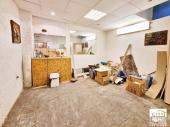|
| SUNNY WEATHER, GOOD PRICES |
|
|
 Before the fall of communism in 1989, people from Scandinavia, the former Soviet bloc and the Middle East were regular guests in Bulgaria's spas which specialised in treating diferent medical conditions.
Before the fall of communism in 1989, people from Scandinavia, the former Soviet bloc and the Middle East were regular guests in Bulgaria's spas which specialised in treating diferent medical conditions.
But in the past decade, Bulgaria marketed itself almost entirely as a cheap destination for summer and winter holidays, turning its back on its varied natural resources.
Still, the negative consequences of rampant construction in popular ski and Black Sea resorts have forced the Balkan country to find new ways to attract tourists by bringing its spa resorts and historical heritage into the limelight.
Spa tourism has attracted some $5.4 billion in investment in the past five years, according to data by the Bulgarian Union for Balneology and Spa Tourism. Companies from Israel, Russia, Kuwait, Qatar and Oman have already invested or shown interest.
With Europe's ageing population on the rise and the availability of spa services all the year round, government and industry officials hope spa tourism could be the sector's driving force with an annual growth of 10 percent.
'What we can offer as competitive advantages are the uniqueness of the mineral waters, the ecologically clean locations, the good price-quality balance,' Deputy Economy Minister said. 'The potential is huge.'
The industry is now advertising itself at fairs in Germany, the Balkans, Israel and Russia.
Sigrun Lang, president of the European Spas Association, says Bulgaria's rich natural resources, long-term traditions in balneotherapy and well-qualified specialists in the sector may come to nothing if the country does not market itself.
'It is a country of many opportunities,' Lang told Reuters. 'Marketing is most important because if nobody knows that you have great locations, people cannot come.'
Visitors from the West are amazed to discover that Bulgaria has 220 km (137 miles) of Black Sea beaches, and its mountains boast 130 peaks over 2,000 metres (6,560 feet) with excellent skiing and hiking as well as more than 600 mineral springs.
Mention Bulgaria and many in the West will list associations with corruption, but few know it is one of the oldest countries in Europe teeming with Thracian tombs, golden treasures and valleys of roses.
The new centre-right government, elected last July, remains oblivious and has allocated a meagre 2 million euros for tourism advertising this year. This compared with 12 million euros earmarked by debt-stricken, neighbouring Greece—one of the world's most visited destinations.
The industry has managed to change the common misconception at home that spa resorts are beneficial only to the elderly who complain from pain in the bones. Bulgarians account for some 80 percent of the visitors in the high-end wellness hotels.
The spa industry union says tourism's share of GDP could double in the next three years if Bulgaria established itself at the European market as a full year destination betting on spa and cultural tourism which can be easily combined together.
'With what it has, Bulgaria can turn into a mecca for balneology,' said Rumen Draganov, head of the Institute for Analysis and Assessment in Tourism. 'But it needs a strategy.'
Source Name: Globalgoodnews.com
|
| Friday, Oct 01, 2010 |
|
|
|
|
| » RENTALS |

|
|
|
| Commercial |
€ 100 |
|
| Location: |
Veliko Tarnovo |
|
|

|